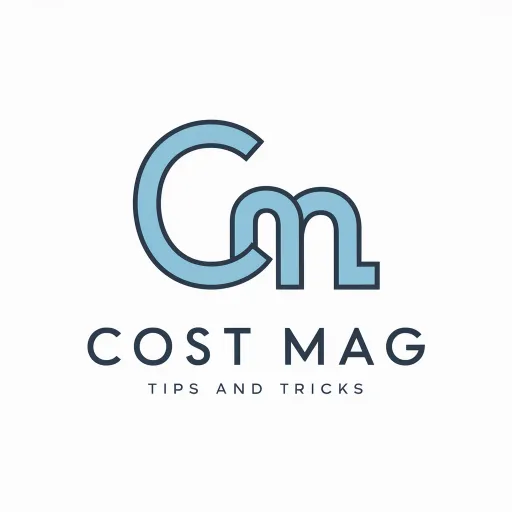If you’ve ever found yourself in a situation requiring discreet investigation or seeking answers to elusive questions, you’ve likely pondered the question, “How much does it cost for private detective?” Private detectives are professionals who specialize in uncovering hidden truths, solving mysteries, and providing valuable insights through their investigative skills.
The cost associated with hiring a private detective can vary significantly depending on a variety of factors, making it essential to understand the key elements that influence the price of their services. In this exploration, we’ll delve into the intricacies of private detective fees, shedding light on the considerations and variables that impact the overall cost of availing their expertise.
Key Factors Influencing Private Detective Fees

Engaging the services of a private detective represents a significant decision in various scenarios. To enable you to make a judicious choice, it is essential to explore the factors that exert an influence on their fees.
1. Proficiency and Seasoning:
The competence and experience possessed by a private detective have a palpable bearing on their fee structure. Detectives endowed with a well-demonstrated history of accomplishments, specialized proficiencies, or official accreditations typically command somewhat elevated rates. However, their adeptness often translates into expeditious and pinpoint results.
2. Geographical Locale:
The geographical location where your investigation unfolds holds substantial sway over the overall cost. Private detectives in bustling metropolises usually stipulate higher fees compared to their counterparts in more modest locales. This disparity is primarily due to disparities in living costs and the heightened demand for investigative services in urban areas.
3. Nature of the Inquiry:
The character and intricacy of the investigation bear down heavily upon the financial outlay. Elementary tasks, such as background checks or uncomplicated surveillance assignments, tend to incur less expenditure in contrast to multifaceted cases necessitating extensive research, multiple operatives, and protracted surveillance periods.
4. Temporal Dimensions:
Private investigator remunerations are conventionally metered on an hourly basis. It is imperative to establish a lucid timeline with your detective to facilitate cost-effective management of the inquiry.
5. Apparatus and Technology:
The utilization of state-of-the-art equipment, encompassing GPS tracking devices, covert cameras, and forensic tools, can augment the overall investigation cost. Notwithstanding, these technological advancements often yield superior results, albeit with a more substantial price tag.
6. Statutory Compliance:
Private investigators are compelled to operate in conformity with the legal and ethical standards underpinning their profession. Adherence to local regulations and the requisite documentation procedures can introduce incremental expenses into the equation.
7. Travel and Incidental Costs:
If your case mandates extensive travel by the detective, it is reasonable to anticipate ancillary expenditures such as transportation, accommodation, and sustenance. It is judicious to engage in candid discussions regarding these outlays to preclude any unforeseen financial surprises.
8. Eminence and Testimonials:
Distinguished detectives with a track record of triumphs may set forth premium rates. Nevertheless, their corroborated dependability can instill a sense of security and enhance the likelihood of accomplishing your desired objectives.
9. Urgency Implications:
The exigency characterizing your investigation can exert an impact on the expenses incurred. Rush assignments or cases demanding immediate attention may involve higher fees due to the exigent nature necessitating prompt deployment and prioritization.
10. Confidentiality and Prudence:
Private detectives are renowned for their commitment to discretion. Safeguarding confidential information entails supplementary measures and safeguards, which, in turn, can precipitate elevated fees to preserve your privacy.
Exploring the Expenses of Engaging a Private Investigator

When contemplating the enlistment of a private investigator, whether the matter pertains to personal concerns like suspicions of infidelity or intricate corporate investigations, it is paramount to gain a comprehensive understanding of the costs involved. Delving into these expenses is pivotal for a judicious and well-informed choice. Here’s an exhaustive examination of the facets influencing the typical costs associated with hiring a private investigator:
1. Preliminary Consultation:
Private investigators often extend the courtesy of an initial consultation at no charge. This meeting serves as a forum to articulate your objectives and garner an initial estimation of the financial implications, aiding in the assessment of whether their services harmonize with your financial parameters.
2. Hourly Rates:
It is customary for private investigators to levy fees on an hourly basis. The precise rate varies contingent upon factors like geographical location, the investigator’s experience, and the intricacy of the investigation. Anticipate an average hourly rate ranging from $50 to $150.
3. Retainer Fees:
A substantial number of investigators necessitate the disbursement of a retainer fee upfront. This fee constitutes an advance payment predicated upon the approximated number of hours requisite for your investigation. It serves a dual purpose, enabling them to offset initial expenses while ensuring their availability.
4. Incidental Costs:
Clients commonly bear the onus of reimbursing investigators for incidental expenses such as travel, surveillance equipment, background checks, and more. These disbursements have the potential to exert a substantial influence on the aggregate cost.
5. Complexity of the Case:
The convolution inherent to your case exerts a pivotal influence on cost. Assignments characterized by simplicity, such as background checks or uncomplicated surveillance tasks, are usually economically priced in contrast to multifaceted investigations demanding extensive research and resource allocation.
6. Specialized Services:
Private investigators may proffer specialized services, including locating missing individuals or unearthing concealed assets. Each of these services is accompanied by its own unique pricing framework.
7. Geographical Locale:
Geographical location is a salient determinant of costs, with investigators stationed in metropolises frequently imposing elevated fees owing to the augmented cost of living and heightened demand for their services.
8. Compliance with Legal Norms:
Stringent adherence to legal and ethical norms is obligatory in the realm of investigative services. Compliance with local statutes, legal consultations, court appearances, or the necessity for meticulous documentation can contribute to augmented expenses.
9. Comprehensive Reporting:
Private investigators furnish clients with comprehensive reports and documentation detailing their findings. The labor-intensive nature of preparing these documents is a contributing factor to the overall cost.
10. Fee Negotiation:
It is noteworthy that some investigators are amenable to fee negotiations, particularly for protracted or high-value cases. Engaging in candid discussions pertaining to pricing alternatives can facilitate the alignment of their services with your fiscal framework.
Pricing of Investigative Services: A Comprehensive Exploration

Delving into the realm of investigative services pricing is a prudent endeavor, whether you are embarking on a personal quest or seeking answers in the professional sphere. It is essential to fathom the intricacies of how these services are costed to make well-informed decisions that align with your objectives and budget. Let’s embark on a detailed journey through each facet that influences the pricing of investigative services:
1. Service Diversity:
The panorama of investigative services is vast, encompassing background checks, surveillance, asset searches, and more. The diversity in services translates to variations in pricing, with more complex tasks naturally incurring higher costs. Simple assignments like database searches may be budget-friendly, while intricate investigations demand more substantial financial commitments.
2. Expertise and Experience:
The caliber of the investigator plays a pivotal role in pricing. Detectives with a wealth of experience and a proven track record often command higher fees. However, their expertise can lead to more efficient and effective investigations, potentially reducing the overall cost by ensuring timely results.
3. Geographic Influence:
Location exerts a significant impact on pricing. Investigators operating in bustling urban hubs tend to set higher rates due to elevated living expenses and greater demand for their services. Conversely, those in less densely populated areas may offer more competitive pricing structures.
4. Complexity of the Assignment:
The intricacy of your case is a direct determinant of pricing. Tasks that require in-depth research, extensive surveillance, or the involvement of multiple agents tend to be more expensive. Simpler, well-defined assignments typically come with a more accessible price tag.
5. Duration of Engagement:
Private investigators typically bill by the hour. As such, the duration of the investigation directly correlates with the total cost. Establishing a clear timeline and understanding the estimated hours required can be instrumental in managing expenses effectively.
6. Technological Tools:
Investigative services often leverage advanced equipment, including GPS trackers, hidden cameras, and forensic tools. While these technologies enhance the quality of results, they can contribute to higher costs. The investment in cutting-edge tools, however, is often justified by the precision they offer.
7. Legal and Ethical Compliance:
Maintaining strict adherence to legal and ethical standards is paramount in the world of investigative services. This commitment to compliance can introduce Expenses, especially if legal consultations, court appearances, or extensive documentation are necessary.
8. Travel and Incidental Expenses:
For cases requiring extensive travel or specialized Clients should anticipate ancillary costs, such as transportation, lodging, and meals. Candid discussions about these expenses upfront can prevent unwelcome financial surprises.
9. Urgency of the Assignment:
The urgency with which your investigation needs to be executed can affect pricing. Rush assignments or those demanding immediate attention may come with higher fees due to the need for rapid deployment and prioritization.
10. Confidentiality and Discretion:
Private investigators are renowned for their unwavering commitment to confidentiality. Safeguarding sensitive information necessitates Measures and precautions, which can translate into higher fees to ensure the utmost privacy and discretion.
Hourly Rates for Private Detectives: A Closer Look
When considering the services of a private detective, understanding the intricacies of hourly rates is pivotal in making a well-informed decision. Each element of this pricing structure carries nuances that merit exploration. Let’s delve into the fascinating world of hourly rates for private detectives:
1. Variability by Expertise:
Private detectives’ hourly rates can vary substantially based on their experience and expertise. Seasoned investigators with a proven track record may command higher rates due to their wealth of knowledge and successful case history.
2. Geographical Influence:
Geographical location plays a significant role in determining hourly rates. Private detectives in major metropolitan areas often charge more to accommodate the higher cost of living and increased demand for their services.
3. Nature of the Investigation:
The complexity of the investigation directly impacts the hourly rate. Simple tasks like basic background checks may have lower rates, whereas intricate cases involving extensive research, surveillance, and specialized skills may warrant higher fees.
4. Equipment and Technology:
Cutting-edge equipment and technology can enhance the efficiency and accuracy of investigations. However, they can also contribute to higher hourly rates as investigators invest in tools that yield superior results.
5. Legal Requirements:
Private detectives must adhere to legal and ethical standards. This often includes documenting their work meticulously, which can extend the hours worked on a case and, subsequently, the hourly charges.
6. Client Collaboration:
Effective communication and collaboration with your private detective can optimize their efficiency. By providing clear information and objectives, you can potentially reduce the number of billable hours required for your case.
7. Discretion and Expertise:
Private detectives are known for their discretion. A highly skilled and discreet investigator can often complete tasks more efficiently, potentially leading to fewer hours billed.
8. Industry Specialization:
Private detectives with specialized knowledge in a particular industry, such as corporate investigations or family law, may have higher hourly rates due to their specialized expertise.
9. Overhead Costs:
The overhead costs associated with running an investigative agency, such as office space and administrative expenses, can influence hourly rates.
10. Client Expectations:
Your expectations and the level of detail you require in reports and documentation can affect the time spent on your case and, consequently, the hourly charges.
Surveillance and Investigation Expenses: An In-Depth Exploration

When delving into the world of private investigation, comprehending the nuances of surveillance and investigation expenses is crucial for making financially informed decisions. These expenses constitute a significant portion of the investigative process and deserve a detailed examination:
1. Surveillance Equipment Costs:
Private investigators often employ a range of surveillance tools, including cameras, GPS trackers, and audio recording devices. Understanding the cost implications of these tools is vital, as they play a pivotal role in gathering evidence.
2. Rental and Maintenance Fees:
Some specialized surveillance equipment may be rented, incurring Costs. Maintenance and calibration of these devices are also necessary for optimal performance, contributing to overall expenses.
3. Travel Expenses:
Surveillance often involves travel to various locations, which can encompass fuel costs, vehicle maintenance, and accommodation expenses. Clients should anticipate and budget for these travel-related outlays.
4. Stakeout and Observation Hours:
Private investigators bill for the hours spent on surveillance, including stakeouts and observation. Rates can vary based on the investigator’s expertise and location, making it essential to clarify the billing structure.
5. Covert Operations:
In cases requiring covert operations or undercover agents, expenses related to disguises, cover stories, and Personnel may arise. These can significantly impact the overall investigative budget.
6. Specialized Expertise:
Investigations demanding specialized expertise, such as forensic analysis or digital forensics, may incur Costs. These experts are pivotal in deciphering complex data or uncovering digital evidence.
7. Photographic and Video Documentation:
The collection of photographic and video evidence is standard in surveillance. Costs associated with camera equipment, media storage, and post-production work should be considered.
8. Database Access Fees:
Access to various databases for background checks, criminal records, or public records may necessitate subscription fees or per-query charges. Investigative agencies typically pass these costs on to clients.
9. Legal Consultations:
Some cases require legal consultations or collaboration with attorneys. These expenses should be factored into the overall investigative budget.
10. Administrative and Research Costs:
Administrative tasks, research, and information retrieval often incur expenses. These activities are essential for planning and executing successful investigations.
Legal and Documentation Costs: A Thorough Analysis

In the realm of private investigations, delving into the intricate details of legal and documentation costs is paramount for making well-informed decisions while maintaining the integrity of the investigative process. These costs encompass a multifaceted landscape that warrants in-depth exploration:
1. Legal Consultations:
Legal experts play a pivotal role in guiding investigations through complex legal terrain. Consultations with attorneys ensure that the investigative path remains compliant with the law and ethical standards.
2. Legal Research:
Unraveling legal intricacies often involves delving into statutes, precedents, or case law. Legal research costs are incurred in the pursuit of comprehensive understanding, safeguarding the integrity of the investigation.
3. Court Filings:
When legal proceedings become a necessity, expenses related to filing documents, serving subpoenas, or other court-related paperwork arise. These expenditures are indispensable for advancing the case within the legal framework.
4. Affidavits and Sworn Statements:
Affidavits and sworn statements authenticate evidence and bolster its credibility. Expenses tied to notary fees or attorney services ensure the veracity of crucial documentation.
5. Witness Statements:
Eliciting statements from witnesses involves meticulous interviews or depositions. Costs can extend to transcription and recording services, ensuring that witness accounts are accurately preserved.
6. Expert Witnesses:
Expert witnesses, possessing specialized knowledge, provide invaluable testimony. Their fees, travel expenses, and consulting charges contribute to the comprehensive costs of securing expert insights.
7. Legal Representation:
In scenarios demanding litigation or the engagement of legal representation, legal fees for attorneys become a substantial part of the expenditure.
8. Documentation and Record-Keeping:
Diligent documentation of case details, evidence, and investigative findings is fundamental. Costs tied to record-keeping software, secure data storage, and data management underscore the importance of organized documentation.
9. Notarization and Authentication:
Ensuring the authenticity of documents and evidence may necessitate notarization or authentication services, involving associated fees to substantiate the investigative process.
10. Photographic and Video Evidence:
The documentation of photographic and video evidence mandates consideration of equipment costs, media storage, and professional editing services, vital for preserving visual evidence.
Expenses for Specialized Investigations: An In-Depth Examination

When embarking on specialized investigations, a thorough comprehension of the intricate web of expenses is essential for making informed decisions. Specialized investigations encompass a diverse spectrum, each with unique cost considerations. Let’s embark on a comprehensive journey through these expenses:
1. Forensic Analysis:
Specialized investigations often involve forensic analysis, requiring experts to scrutinize digital or physical evidence meticulously. Costs include the fees of forensic specialists, laboratory usage, and advanced tools.
2. Digital Forensics:
In cases of cybercrime or electronic evidence examination, digital forensics experts are indispensable. Expenses extend to data recovery, software licenses, and hardware investments.
3. Undercover Operations:
Covert operations necessitate costs for disguises, cover stories, surveillance equipment, and Personnel. These expenses are vital for maintaining secrecy and ensuring operational success.
4. Missing Persons Searches:
The quest to locate missing persons may demand expenditures on advertisements, private databases, public records searches, and travel expenses, all contributing to the comprehensive costs.
5. Asset Searches:
Investigating hidden assets involves expenses related to financial research, asset tracing, and legal proceedings. These costs are integral to uncovering concealed wealth.
6. Corporate Espionage:
Investigating corporate espionage entails costs associated with counter-surveillance measures, employee interviews, and IT security assessments to safeguard proprietary information.
7. Counterintelligence:
Safeguarding sensitive information from espionage requires investments in encryption technology, employee training, and the hiring of security experts to detect and deter potential threats.
8. Polygraph Testing:
When truth verification is necessary, polygraph testing incurs fees for certified examiners and the equipment used to conduct examinations.
9. Deep Background Checks:
In-depth background checks, often for high-profile or sensitive positions, may involve comprehensive investigations into an individual’s history, including financial, criminal, and personal aspects, contributing to overall costs.
10. Expert Witness Testimony:
In complex legal cases, expert witnesses may be called upon to provide specialized testimony. Expenses encompass expert fees, travel costs, and legal consultation.
Mastery of Crafting a Budget for Private Detective Services
Crafting a budget for private detective services is a sophisticated undertaking that requires the utmost consideration of various elements. When charting your financial course for investigative necessities, it’s imperative to navigate this terrain with precision. Here’s an all-encompassing exploration of how to budget with finesse:
1. Define Your Objectives:
Commence by elucidating your investigative aims. Determine the breadth and purpose of the investigation. Is it of a personal or professional nature? What precise outcomes do you aspire to achieve? A lucid comprehension will serve as your guiding star for budgetary decisions.
2. Research Investigative Costs:
Investigative services encompass a broad spectrum of specialties, each bearing its pricing structure. Engage in thorough research and aggregate estimates from esteemed agencies or detectives to craft a budget grounded in reality.
3. Consult with Professionals:
Initiate consultations with prospective investigators. Engage them in discussions regarding your goals, expectations, and financial constraints. A seasoned investigator possesses the acumen to shed light on the fiscal facets of your case.
4. Understand Billing Structures:
Investigative services predominantly adhere to hourly billing or retainer fees. Familiarize yourself with the billing framework, ensuring it seamlessly aligns with your financial capacity.
5. Evaluate Complexity:
Gauge the intricacy of your case. Elaborate investigations may incur augmented costs due to specialized expertise, equipment, or extended work hours. Measure the depth of complexity for precise anticipation of potential expenditures.
6. Consider Additional Costs:
Delve beyond investigator fees and take ancillary expenses into account, encompassing travel, surveillance gear, database access, and legal consultations. These outlays wield substantial influence over your budget.
7. Prioritize Services:
Emphasize the investigative services that hold utmost importance. Ascertain which facets of the investigation are indispensable and which can be deferred or downscaled to harmonize with your budget.
8. Establish a Contingency:
Within your budget, carve out a financial cushion to accommodate unforeseen expenses or potential requisites for supplementary investigative endeavors as the case evolves.
9. Request Detailed Estimates:
Seek all-encompassing cost estimates from investigators, including meticulously itemized breakdowns. Such transparency will empower you with profound insights into how your budget will be apportioned.
10. Negotiate Fees:
In specific scenarios, investigators may entertain fee negotiation, particularly for protracted or high-value cases. Engage in forthright dialogues to explore avenues for economizing your budget.
Mastering Financial Planning for Private Detective Services: A Thoughtful Guide
Embarking on the journey of budgeting for private detective services resembles charting uncharted waters, demanding precision, foresight, and a profound understanding of multiple elements. Allow us to guide you on a meticulous path toward mastering the art of budgeting for your investigative needs:
1. Define Your Objectives:
The inaugural step is to crystallize your investigative objectives with utmost clarity. Ask yourself, “What aspirations drive this pursuit?” Whether you seek resolution for personal matters or address professional concerns, a finely honed objective shall be your unwavering compass throughout the budgeting process.
2. Research Investigative Costs:
The realm of detective services spans a rich tapestry of offerings, each carrying its distinctive pricing structure. Immerse yourself in diligent research, amassing estimates from esteemed agencies or private detectives. This empirical groundwork shall firmly underpin your budgeting endeavors.
3. Consult with Professionals:
Engage in enlightening consultations with potential investigators. Share your objectives, expectations, and financial constraints with candor. The seasoned wisdom of an experienced investigator can offer invaluable insights, facilitating judicious financial decisions.
4. Understand Billing Structures:
Investigative services are often rendered through hourly billing or retainer fees. Acquaint yourself with the intricacies of these billing structures, ensuring harmonious alignment with your financial capacity and the scope of your investigation.
5. Evaluate Complexity:
Scrutinize the intricacy of your case with meticulous care. Elaborate investigations may necessitate augmented costs, owing to the requirement for specialized skills, equipment, or extended work hours. Gauge the depth of complexity to forecast potential expenditures accurately.
6. Consider Additional Costs:
Extend your contemplation beyond investigator fees to encompass ancillary expenses. Travel, surveillance equipment, database access, and legal consultations are financial facets capable of exerting a substantial influence over your budget.
7. Prioritize Services:
Prioritization stands as a cornerstone of your budgeting strategy. Discern which elements of the investigation are indispensable and which can be deferred or scaled to fit your budget. This strategic approach empowers you to optimize the allocation of your financial.
8. Establish a Contingency:
Within the confines of your budget, allocate a financial cushion to accommodate unforeseen expenses or potential requirements for supplementary investigative work that may emerge as the case unfolds.
9. Request Detailed Estimates:
Seek comprehensive cost estimates from investigators, including meticulously itemized breakdowns. This transparency empowers you with a precise understanding of how your budget will be allocated.
10. Negotiate Fees:
In certain scenarios, investigators may be open to fee negotiations, particularly for protracted engagements or high-value assignments. Engage in transparent and forthright dialogues to explore avenues for optimizing your budget.
Unraveling the Intricacies of Budgeting for Private Detective Services
HOW MUCH DOES IT COST FOR PRIVATE DETECTIVE?
Budgeting for private detective services isn’t just a financial task; it’s a strategic endeavor that requires careful consideration of multiple facets. Let’s delve deeply into each aspect of this art to help you navigate the process effectively:
1. Define Your Objectives:
The foundation of any budget is a clear objective. Define your investigative goals meticulously. Is it a personal matter like infidelity suspicions, a business-related concern, or a complex legal issue? Understanding your objectives sets the stage for a focused budget.
2. Research Investigative Costs:
Investigative services encompass a wide spectrum, from surveillance to cyber investigations. Conduct comprehensive research to gather estimates from reputable agencies or private detectives. This empirical data ensures your budget is grounded in reality.
3. Consult with Professionals:
Engaging in consultations with potential investigators is invaluable. Share your objectives and budget constraints openly. Seasoned investigators can offer insights into financial aspects and guide your budgeting decisions.
4. Understand Billing Structures:
Investigative services often use hourly rates or retainer fees. Familiarize yourself with these billing structures to ensure they align with your budget and the scope of your investigation.
5. Evaluate Complexity:
Assess the complexity of your case. More intricate investigations, involving specialized skills or extended hours, may incur higher costs. Understanding the level of complexity allows for accurate budget projections.
6. Consider Additional Costs:
Beyond investigator fees, factor in ancillary expenses like travel, surveillance equipment, database access, and legal consultations. These costs can significantly impact your budget and should not be overlooked.
7. Prioritize Services:
Prioritization is key. Identify the core services you require and those that can be deferred or scaled back. This strategic approach ensures efficient budget allocation.
8. Establish a Contingency:
Build a financial cushion within your budget for unexpected expenses or Work that may arise as the investigation progresses. A contingency plan safeguards your financial plan.
9. Request Detailed Estimates:
Seek detailed cost estimates from investigators, including itemized breakdowns. This transparency empowers you to understand precisely how your budget will be allocated.
10. Negotiate Fees:
In some cases, investigators may be open to fee negotiation, especially for long-term or high-value cases. Engaging in open discussions can uncover potential cost-saving opportunities and align services with your budget.
Revealing the Concealed Expenses of Enlisting a Private Investigator
Engaging a private investigator is a significant decision, yet the genuine cost often remains concealed beneath the surface. To enable well-informed choices, it is imperative to unveil the covert expenses that might accompany your investigative journey. Let’s delve deeper into these obscured costs:
1. Travel Expenses:
While investigator fees are conspicuous, travel-related costs can be inconspicuous. For cases requiring extensive travel, responsibilities for transportation, accommodation, and meals may fall on you. It is crucial to openly discuss and incorporate these expenses into your budget.
2. Legal Fees:
Legal aspects are occasionally overlooked. If your investigation leads to legal actions, Expenses for attorney fees, court filings, and legal proceedings may arise. Anticipating potential legal costs is essential for budget planning.
3. Equipment and Technology:
Private investigators rely on specialized tools and technology for effective evidence gathering. Costs associated with these tools, such as surveillance equipment or data retrieval software, can accumulate. Understanding the equipment used and its associated fees is paramount.
4. Overtime Charges:
Investigations may not adhere to rigid schedules. Cases demanding extended hours or urgent attention could incur overtime charges. Discussing these possibilities with your investigator is a prudent step to manage unforeseen costs.
5. Third-Party Services:
In intricate cases, investigators may necessitate the expertise of third-party professionals, like forensic analysts or handwriting experts. These Services carry their own fees that should be considered in your budget.
6. Communication Costs:
Effective communication plays a pivotal role in investigations. Expenses related to phone calls, messaging apps, or secure communication channels can accumulate over time. Monitoring and accounting for these expenses are crucial.
7. Documentation and Reporting:
Private investigators furnish comprehensive reports and documentation. The time and effort invested in preparing these documents contribute to the overall cost. Gaining a clear understanding of the scope of reporting and any associated fees is essential.
8. Unexpected Developments:
Investigations are dynamic, and unforeseen developments can arise. Such developments may necessitate alterations in strategy or Work, potentially leading to increased costs. Maintaining open communication with your investigator is key to managing these situations.
9. Post-Investigation Costs:
Even after the primary investigation concludes, there can be post-investigation expenses. These may include legal follow-up, evidence storage, or ongoing monitoring. Preparing for potential expenses that extend beyond the initial investigation is prudent.
10. Privacy Protection:
Private investigators are dedicated to upholding confidentiality, often requiring extra measures and precautions. These security measures, such as encrypted communications or secure data storage, contribute to the overall costs and are vital for safeguarding sensitive information.
FAQS;
How Much Does It Typically Cost to Hire a Private Detective?
The cost of hiring a private detective varies widely depending on factors like location, the complexity of the case, and the services required. On average, hourly rates range from $50 to $150 per hour, with retainer fees often required upfront.
Do Private Detectives Charge Different Rates Based on Location?
Yes, geographic location plays a significant role in determining costs. Private detectives in major metropolitan areas generally charge higher rates due to higher living expenses and increased demand for their services.
What Factors Influence the Cost of Private Detective Services?
Several factors affect the cost, including the type and complexity of the investigation, duration, specialized equipment, legal requirements, travel expenses, and the reputation of the detective.
Are There Additional Expenses Beyond Investigator Fees?
Yes, there can be Expenses such as travel costs, surveillance equipment, legal fees, communication expenses, documentation, and potential third-party expert fees. These should be considered when budgeting for an investigation.
Can I Negotiate Fees with a Private Detective?
In some cases, private detectives may be open to fee negotiations, especially for long-term or high-value assignments. It’s worth discussing pricing options to find a mutually agreeable arrangement.
Conclusion
The cost of hiring a private detective can vary significantly based on a range of factors, including location, the complexity of the investigation, and the services required. On average, hourly rates typically fall between $50 and $150, with retainer fees often required upfront. It’s essential for individuals seeking investigative services to carefully consider these factors, budget accordingly, and engage in open discussions with potential investigators to ensure transparency and alignment with their specific needs and financial constraints.
Understanding the variables influencing private detective fees empowers clients to make well-informed decisions, ensuring that they receive efficient investigative services while managing costs effectively. By establishing clear communication and expectations with investigators and factoring in potential hidden expenses, individuals can embark on their investigative journeys with confidence and financial prudence.

